CONSERVATION CORNER
A weekly blog for all things conservation
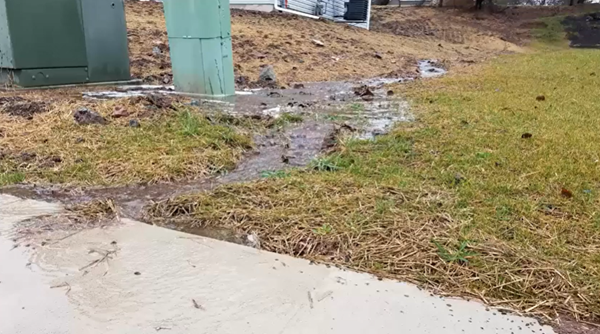 By: Heather McKean; former Penn State Extension educator Have you ever discussed stormwater with your neighbor or wondered how to be a better stormwater neighbor? Neighbor disputes over stormwater are very common. Water does not follow property boundaries and there are often instances where water flows from one property onto another and causes damage. It is important to realize that activities on your own property can adversely affect your neighbor's property.
0 Comments
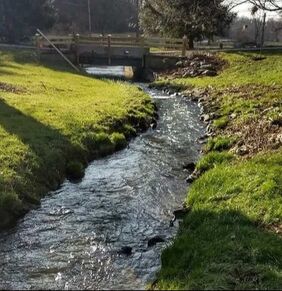 By: Jennifer R Fetter; Penn State Extension Having a stream in your yard can be a beautiful addition to your property. It can also be a source of frustration and confusion when things aren't going well. Winter weather and heavy rains this spring my have taken a toll on your backyard stream this year. Or maybe your stream has been slowly eroding for many years. The stream might be getting deeper and deeper. The banks might be caving in, taking your valuable property for a ride downstream. Maybe your foot bridge or fence is about to fall in the stream too. 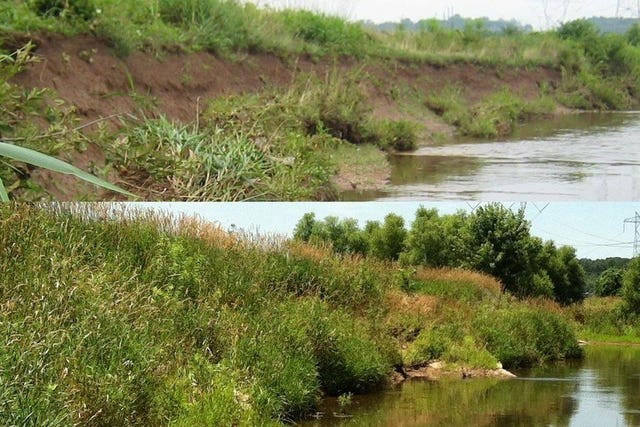 By: Sarah K. Xenophon, Kristen Koch, and Jennifer R Fetter; Penn State Extension One of the many visual indicators you might use to assess the health of a stream is the amount of stream bank vegetation and other cover. You might find yourself walking along a stream or river, either on your property or when visiting a park or your local woods, and wish you had an easy way to understand the health of that stream. One indicator of stream health is the condition of the stream bank cover. When we talk about stream bank cover, or simply bank cover, we are talking about how much of the soil immediately adjacent to the water is covered by growing vegetation, stable debris, or bedrock material. This helps determine the health of a stream because it can tell us a lot about the relative stability of that stream. A stable stream maintains the same shape and flow pattern over time. A healthy, stable stream typically has more bank cover than an unhealthy stream. Bank cover helps reduce erosion by reducing the amount of soil exposed to passing water as it rushes into and down the stream. The stability of a stream is vital for any organisms that live in and around the stream and for protecting your property and nearby infrastructure (driveways, sewer lines, bridges, and more).  By: Jonathan VanNoy, Natural Resource Specialist What do you consider to be the “official sign” that spring has arrived? During daylight hours, many observe the first Robin of the year to be the sign that spring has sprung, or at least that winter’s grasp is weakening. Other examples are the emergence of flowers such as Snowdrops, Crocus, or Daffodils. However, one of the most prominent (and my personal favorite) sign of spring is the cheery chorus of the Northern Spring Peeper! 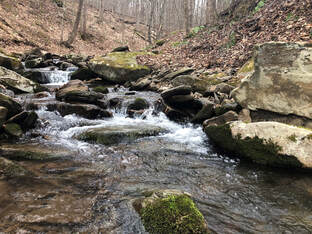 By: Cathy Yeakel, District Manager, BCCD Pennsylvania and neighboring states are working at local levels to clean up our state’s waterways that flow into the Chesapeake Bay. In 2019, the Pennsylvania Department of Environmental Protection (DEP) submitted the Phase III Watershed Implementation Plan (WIP), which established tangible nutrient reduction goals based on locally-led initiatives to reduce water pollution, improve quality of life, address flooding problems, and obtain credit for previously installed best management practices. Within the Phase III WIP, all 43 Pennsylvanian counties within the Chesapeake Bay watershed were tasked with developing their own Community Clean Water Action Plan (CAP). By: Ad Crable, Staff Writer, Chesapeake Bay Journal
The Susquehanna River has the most flood prone basin east of the Mississippi. And Binghamton, NY, located entirely in a floodplain at the confluence of the Susquehanna and Chenango rivers and downhill of steep, flash-flooding watersheds, might be its most pummeled victim. But now, after the twin punches of an all-time record flood in 2006 followed by an even more devastating 500-year flood only five years later, officials have decided to quit fighting its rivers and instead rebuild to roll with the punches. 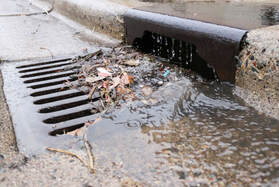 By: Kevin Brown, Agricultural Resource Specialist Ok, let’s get down to the brass taxes. What is a rain tax, where is it happening, and what can I do to help the situation without going to that extreme? Who wants to be taxed for rain falling on their property? “We don’t have control over that” is what they say, but we DO have control over what happens to it from there. Can you imagine Towanda (or insert your community here) before it was Towanda? Especially because it is built on a side hill. One thousand years ago a 2-inch rainfall event happened, and all that rain went into the ground. The river level was unaffected. The rainfall gradually moved through the soil layers and the excess was released into the river days or weeks or even months later. The result, no flooding. Picture it during the next 2-inch rainfall that we get. Rain hits your home, it hits the streets, it hits the schools and businesses. In some places there are no places whatsoever for it to infiltrate into the ground. It goes from your downspout to the curb, dumped into the street, adds to the water already running down the street, hits the storm drain and goes DIRECTLY to the river. The result, billions of gallons of water now going down the river that never made it there before. And it is going there like NOW. Add that to water coming from Sayre and Waverly and Athens and Chemung and Binghamton and Owego, etc. The town fathers didn’t think about this when they set up some of the systems, but as more and more communities grow, they are thinking about it now. Now we have a huge problem. We have concentrated all that water and sent it downstream (along with it- pollution, erosion, sediment, nutrients, etc.). Again, do we care enough to try and fix it one house at a time? Or do we institute a (wait for it…) Stormwater Fee (RAIN TAX)? NNNOOOOOOOO!! 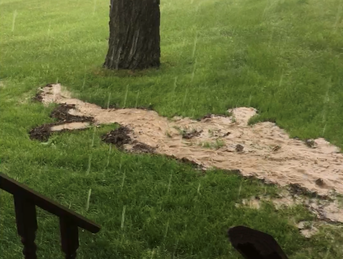 By: Kevin Brown, Agricultural Resource Specialist Hopefully part 1 gave you some things to think about and maybe even got your blood boiling a little bit. That was my intention. I want you thinking about this and even thinking that maybe you can do something about it in your own little corner of the world. It really doesn’t take much to make a huge difference in some cases. Our goal, as homeowners AND business owners, should be that absolutely no rainwater leaves our properties, especially in normal rainfall events. NONE. I know it is easy to run inside while it is raining and just not realize, or maybe even care, where that rainwater is going. Well we should. Next time it rains, grab the rain suit and head outside. Take a stroll along your property and take note of what you see. Are you adding to the problem, or not? Is water leaving your property, or not? If it is, is there anything you can do about it? 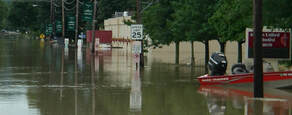 By: Kevin Brown, Agricultural Resource Specialist Right here in Pennsylvania! Sound crazy? Sound like something that the government came up with just to get some more of YOUR hard-earned money? Maybe, but it is happening. And, as much as you may think it’s a crazy idea, it has some validity behind it. I know I possibly could start a firestorm here but read on for where this notion is coming from and why we do need to do something about it. There may be better ideas how to handle it, but here is the concept: |
AuthorsVarious staff at the Bradford County Conservation District Archives
July 2024
Categories
All
|
|
Bradford County Conservation District
Stoll Natural Resource Center 200 Lake Road, Suite E | Towanda PA 18848 Phone: (570)-485-3144 |
